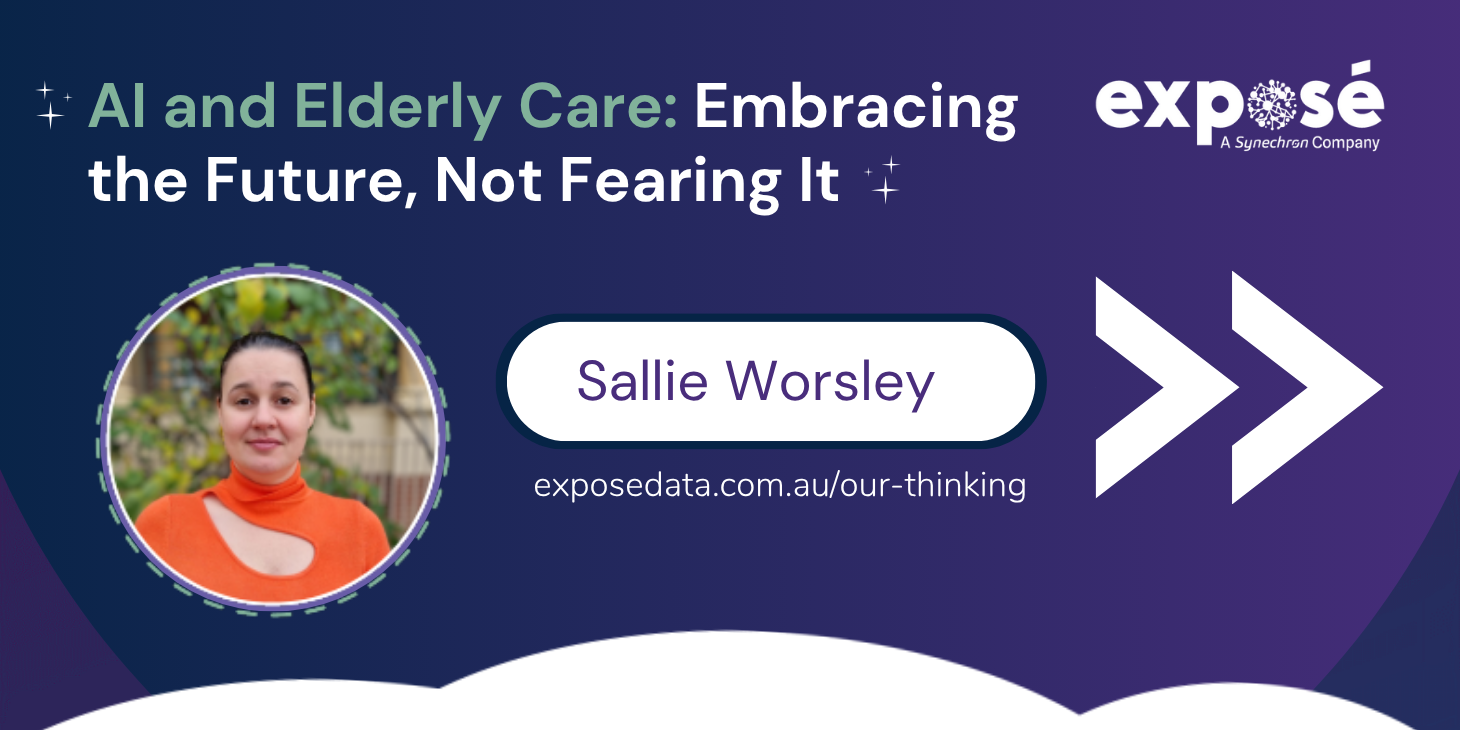Author: Sallie Worsley
AI and Elderly Care: Embracing the Future, Not Fearing It
As with the arrival of cars, computers, and mobile phones, artificial intelligence (AI) is poised to reshape our world. And just like those earlier innovations, it’s not about replacing people, it’s about enhancing lives.
Supporting Independence, Not Replacing Care
Caring for ageing parents or loved ones is deeply personal and often deeply challenging. Many of us juggle work, children, bills, and the guilt of not being able to be everywhere at once. What if AI could help ease that burden?
Imagine a system that:
- Checks in daily to see if your parent is okay
- Reminds them to eat, take medication, or drink water
- Scans for signs of illness like a fever or unusual behaviour, and alerts you immediately
- Offers companionship through conversation, games, or even personalised music and memory quizzes
- Suggests uplifting activities when it senses sadness or loneliness
- Detects a fall or emergency and automatically calls for help
These are real possibilities and serve as a starting point for the potentially supportive and lifesaving technologies we can develop and train.
Take, for example, a daughter who lives overseas, whose father now lives alone. She worries constantly about what might happen if he were to fall or become ill. With AI-enabled fall detection and emergency response, help can be summoned quickly. This kind of support could be invaluable not just for her father, but for anyone living alone.
Or consider a son caring for his mother who is experiencing cognitive decline. While he runs errands or attends work, an AI companion keeps her engaged with memory games, reminds her to hydrate, and gently redirects her if she becomes confused or anxious. It’s not a replacement for love; it’s a lifeline of support that allows him to step away when needed, without the constant worry.
AI as a Companion and not a Replacement
Human connection is irreplaceable. AI won’t replace the warmth of a hug or the joy of a shared laugh. But it can be an extra layer of support, a safety net that helps people live independently for longer, with dignity and confidence.
AI doesn’t get tired. It doesn’t call in sick. It doesn’t lose patience. That’s not to say it’s better than people; it’s just different. And when used ethically and thoughtfully, it can complement human care, not compete with it.
Cognitive Health and Emotional Wellbeing
AI could also play a role in keeping minds sharp and spirits high:
- Memory games and quizzes tailored to each person’s cognitive level
- Voice assistants that tell stories, play music, or guide meditation
- Mood detection that gently nudges someone toward a favourite activity or calls a loved one when needed
These tools could help delay cognitive decline, reduce loneliness, and provide families peace of mind.
Ethics, Privacy, and the Human Touch
Of course, there are important questions to ask. How do we protect privacy? How do we ensure AI is used responsibly? These are not technical questions, they’re human ones. And the answers will come from how we choose to design, regulate, and use these tools.
AI is not inherently good or bad. Like any tool, it reflects the intentions of the people who wield it.
Broader Conversation About Work and Society
There’s also a bigger picture to consider. Some fear AI will take jobs, and that’s a valid concern. But society doesn’t function without people. We need consumers. We need taxpayers. We need people to live, work, and thrive.
If AI replaces every job, who buys the products? Who pays for public services? The answer isn’t to fear AI, it’s to reimagine how we work alongside it. To use it to reduce burnout, improve safety, and free up time for the things that truly matter.
A Tool for Good
AI won’t solve every problem. But it can help. It can support caregivers, protect the vulnerable, and offer companionship to those who need it most. It can help us live more balanced lives, not by replacing people, but by amplifying our care.

